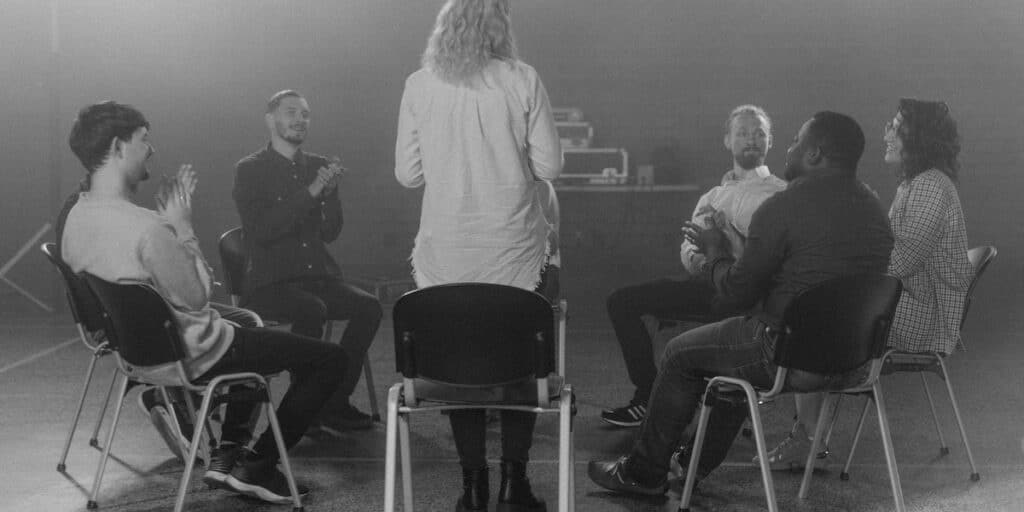Divorce, domestic violence, bullying, substance abuse, eating disorders, depression, and anxiety — today’s world can be tough on anyone. When suffering from these hardships, it is easy to believe that you’re alone – the only one going through what you’re experiencing. The feeling of isolation can cause you to retreat, making your situation worse.
But the thing is that you are not alone. More importantly, unlike decades ago, you don’t have to use a generic self-help guide to deal with your issues. You can get psychotherapy in Dublin to get on the right track. Talking to a professional can help you resolve whatever challenges you are going through or overcome your mental problems.
What Is Psychotherapy?
Psychotherapy is a form of therapy that helps people overcome mental health issues and improve their overall quality of life. Also called talk therapy, it is a process where one person—the client or patient—works with a trained mental health professional (the therapist or counsellor) to explore troubling issues and work towards resolving them.
This form of treatment helps you learn and grow by taking a closer look at your problems. But you won’t just talk about your issues. You will also learn how to cope with them and make changes that will improve your life.
Psychotherapy can help you deal with everything, from depression and anxiety to relationship problems and career issues. It’s a safe place for exploration and self-discovery where you’ll work with a qualified counsellor or therapist equipped to help you navigate what you are going through.
Remember, the goal of psychotherapy is not only to help you feel better but also to give you skills that will help you live more effectively in the future.
What Conditions or Issues Are Treated With Psychotherapy?
Psychotherapy is a very versatile treatment option because it can be tailored to your needs.
It is used to treat or resolve the following mental health conditions effectively:
- Depression
- Bipolar disorder
- Anxiety
- Phobias
- Panic disorder
- Obsessive-compulsive disorder
- Post-traumatic stress disorder
- Personality disorder
- Schizophrenia
Psychotherapy is also used to treat eating disorders like bulimia and anorexia.
In addition, talk therapy can help you deal with challenging life situations, such as conflicts with your partner and the death of a loved one. It can also help you cope with stressful situations.
Simply put, psychotherapy is not just for people suffering from mental illness. It is also for those who feel stuck in their lives and want help figuring out how to move forward.
What Kinds of Psychotherapy Are Available in Dublin?
There are many types of psychotherapy in Dublin, and it can be confusing to know which type is best for you. But fret not, as you can always consult your counsellor or therapist about which type can benefit your case more.
Kinds of Psychotherapy
Here’s a quick breakdown of the most common types:
Cognitive Behavioural Therapy (CBT)
This type of therapy focuses on helping you learn to change negative thought patterns that may be contributing to your symptoms or difficulties. It also helps you recognise and change unhealthy behaviours.
Psychodynamic Therapy
Psychodynamic therapy focuses on understanding why you feel the way you do and identifying how past experiences have shaped your present behaviour. It can help you get in touch with feelings that may have been buried for a long time.
Interpersonal Therapy
This type of therapy helps patients understand how their relationships affect their health and well-being. It can help people develop better communication skills so they can improve relationships both at home and at work.
Dialectical Behavioural Therapy (DBT)
This is type of cognitive behavioural therapy that was developed specifically for treating borderline personality disorder (BPD). Currently, it is used for high-risk and tough-to-treat cases. It involves mindfulness skills such as acceptance and validation, interpersonal effectiveness skills such as assertiveness training and distress tolerance skills such as emotion regulation (e.g., meditation).
Family therapy
Family therapy helps families understand how each person’s problems affect other members’ lives and how their relationships impact each other’s well-being.”
Psychotherapy Methods and Formats
While it is called talk therapy, psychotherapy also involves other methods, such as art, dance and drama. So, depending on your counsellor or therapist, you won’t just be talking during your sessions.
Also, different psychotherapy formats are available. The therapy could be done one-on-one or in a group setting, which is usually the case for family therapy. Nowadays, apart from traditional face-to-face sessions, psychotherapy can be done online.
How Much Does Psychotherapy Cost in Dublin?
In trusted clinics like Access Counselling, the cost of psychotherapy starts at €75. This is typically for a 50-minute session with a qualified psychotherapist.
There are several factors that affect the cost of psychotherapy in Dublin. For one, it can vary depending on where you live or get your therapy. If you’re in Dublin city centre or another major hub such as Cork or Galway, then chances are that prices will be higher than if you were living somewhere rural like Westmeath.
Another factor that affects cost is the therapist’s experience. Some therapists charge more because they have been practising longer than others.
The number of sessions you need can also impact your overall therapy expense. Basically, the more sessions you have, the higher the cost.
It is worth mentioning though some clinics offer sliding scale and low-cost psychotherapy for those with financial difficulties. This means that cost shouldn’t stand in the way of you getting quality therapy services.
How Do You Find the Right Psychotherapist for You in Dublin?
Finding the right psychotherapist might seem challenging — and it is. But it’s also a process that can be incredibly rewarding, particularly when you find the right counsellor or therapist.
So how do you find the right therapist or counsellor in Dublin? First off, it’s important to remember that there is no one-size-fits-all approach to psychotherapy—different people prefer different therapeutic approaches. So, start by asking yourself what kind of treatment would best meet your needs. Do you want someone who primarily focuses on talk therapy? Or maybe someone who also utilises art therapy?
Once you have decided on a type, it’s time to look for someone who specialises in that area and has experience working with people with the same condition or issues as you.
Start by asking friends and family if they know any counsellor or therapist they would recommend. If that doesn’t pan out, you can search online for therapists in Dublin based on your needs. You can use Google or other search engines and put phrases like “family counsellor Dublin” or “depression therapist Dublin” into them to see what comes up.
Look at professional reviews on websites to learn about psychotherapy practices in Dublin. You can look through each review to see if it’s written by someone with similar problems (e.g., depression or anxiety). The information you gather here can help you create a shortlist.
Once you’ve narrowed your list to a few potential therapists, it’s time to make the call. Let them know you’re interested in exploring therapy and ask about an initial consultation.
What Can You Expect on Your First Psychotherapy Session in Dublin?
Getting psychotherapy is a big first step toward feeling healthier and happier. But if you’re new to the process, going to your first session can be nerve-wracking. Knowing what to expect during the appointment can help you feel at ease.
Below, we’ve listed some of the things that may happen during your first psychotherapy session and the succeeding appointments.
First Session
The first meeting is a chance for you to find out what psychotherapy is really like before committing long-term. More importantly, it is an opportunity to get to know your counsellor or therapist and see if there’s chemistry—and if so, you’ll probably be comfortable enough to begin working together. You can expect the following to happen during this session:
- The therapist will meet with you and introduce themselves.
- They will collect information about your mental health history, symptoms and family background. They will ask about medications or supplements you are taking that may be affecting you.
- The therapist will ask why you wanted to get psychotherapy.
- There will be a discussion on your therapy goals and expectations.
- They will go over the ground rules for the sessions to ensure that everyone feels safe and comfortable.
- The therapist will talk to you about the psychotherapy process and what you can expect from them.
- You and the therapist will discuss the schedule, specifically how often you want to meet and when you’re available for appointments.
- You are encouraged to ask questions.
Succeeding Sessions
The second session is when the real work begins! This is when the therapist starts asking questions about how you’re feeling and why—and really listening to what you have to say.
The therapist will also ask questions about what’s going on in your life currently, including things like relationships with family members or friends, work and school stressors, etc.
They will also give you feedback on how they think things are going so far. You’ll probably also have homework after the sessions. This may include writing every day about things that make you feel good or taking time daily to do something you love.
How Do You Prepare for Your First Psychotherapy Session?
Preparing for your first session will help ensure that both you and your therapist have the best possible experience.
Here are some tips to help you get started:
- Try to schedule your appointment at a time when you feel most relaxed. This can help make you feel at ease and able to focus on the therapy process.
- Write down any questions you may have before going into the session. Doing this will help keep your conversations focused and productive.
- Identify what issue you need help with and the goals you want to achieve. The more specific your goals are, the better equipped your therapist will be able to help you achieve them.
- List down your expectations. Having realistic expectations about therapy can help set the stage for a successful treatment.
- Be prepared to talk about yourself—but don’t worry if you feel like talking about yourself isn’t easy for you at first.
- Make sure there are no distractions during the session, including phones. This is important as interruptions can break the “flow” of the therapy or conversation.
In conclusion, psychotherapy is a powerful tool that can help you find clarity and peace. It allows you to work through difficult emotions and thought patterns so that you can live your best life.
So, if you feel like something is missing in your life or that something needs to be addressed and resolved, don’t wait – get started with your therapy as soon as possible.
Are you ready to start psychotherapy in Dublin? Call us today on 015240708 or 014303631 to schedule your first session with our qualified therapist!
Royalty-free images supplied from Pexels as part of SEO service from 3R





